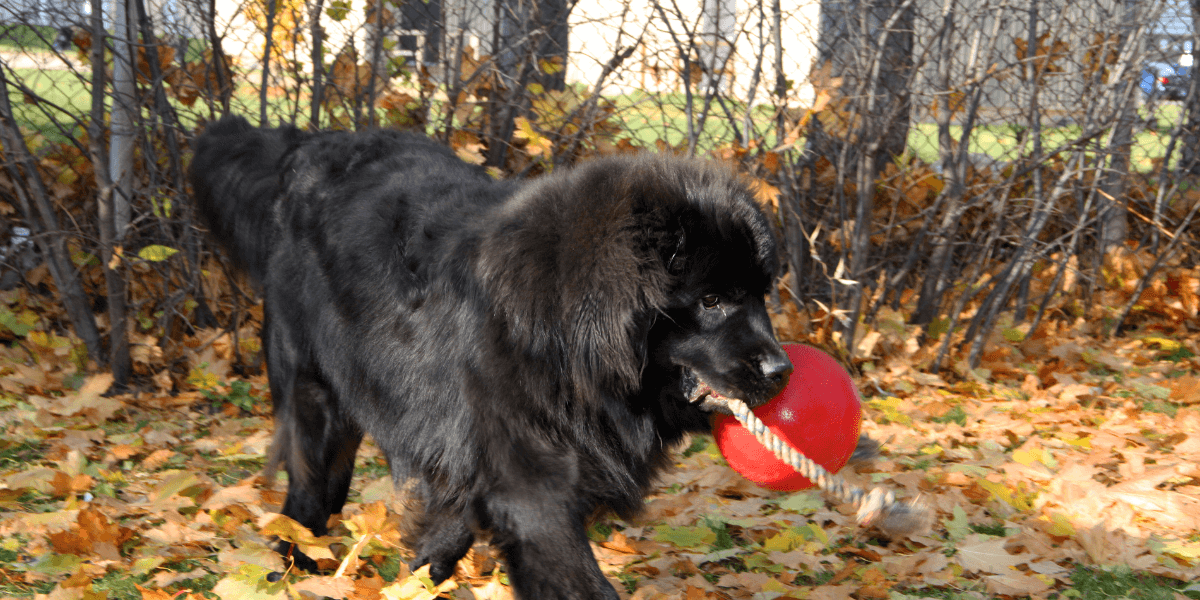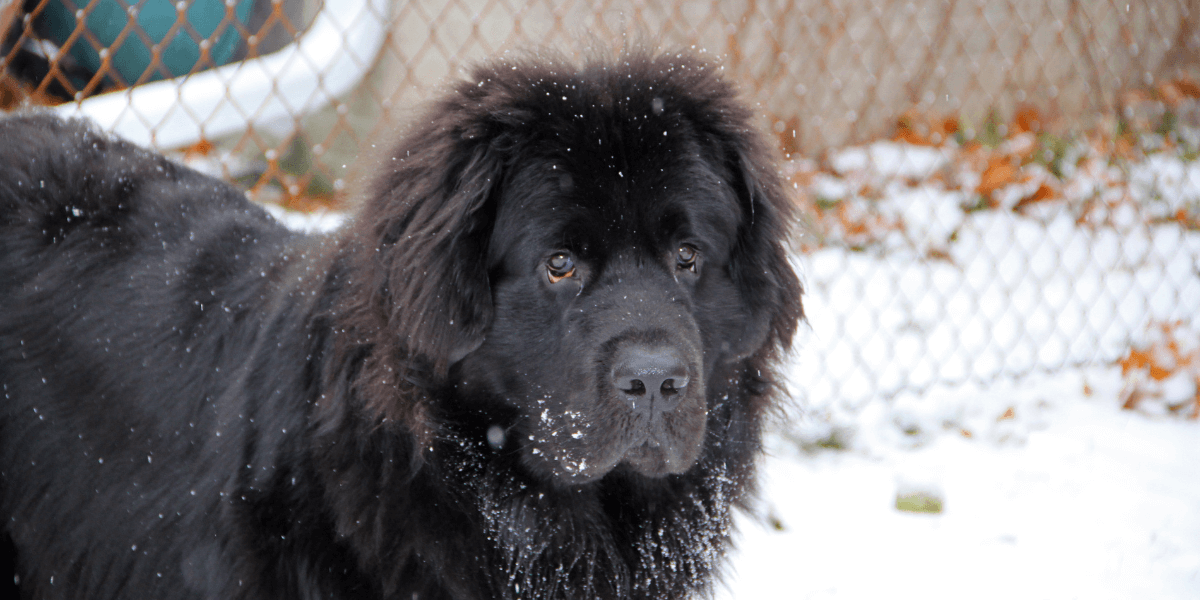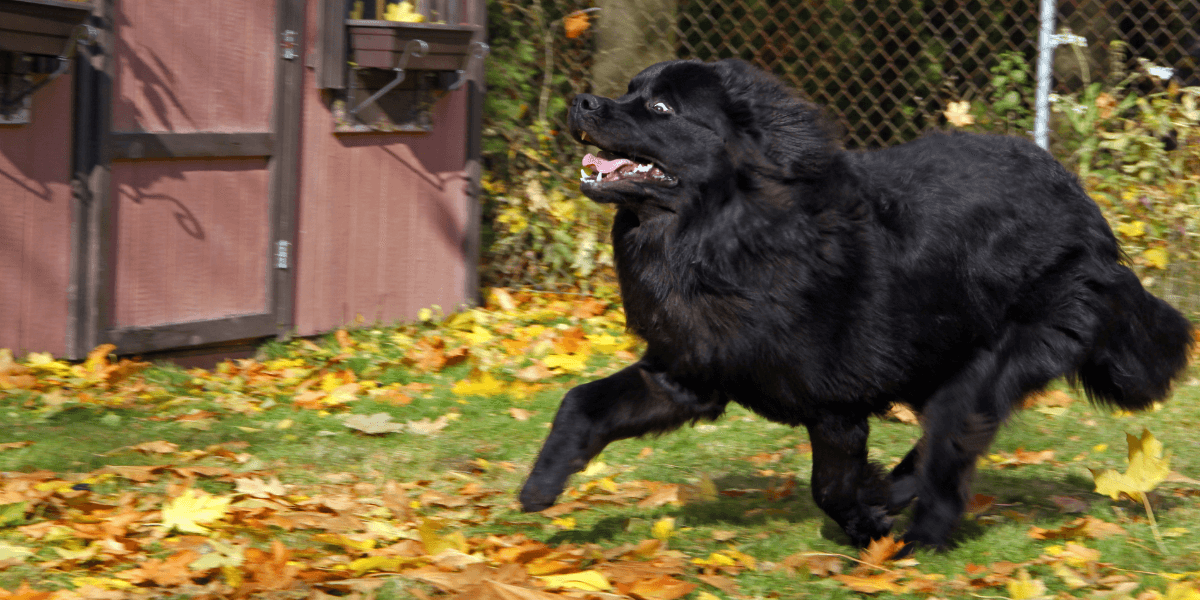Introduction
Newfoundland temperament is known for being gentle, friendly, and highly loyal to family
- These gentle giants are patient, making them excellent companions for kids and families
- Expect a calm demeanor indoors but a playful
- Active attitude when enjoying outdoor activities
- Their protective nature makes them reliable watchdogs without being overly aggressive
- Newfoundlands thrive on human interaction and dislike being left alone
1. Understanding the Gentle Nature of Newfoundlands

Newfoundlands are renowned for their gentle and calm demeanor.
Which makes them excellent companions for families and individuals alike.
Their kind nature is often highlighted in the following ways:
- Patient and Tolerant: Newfoundlands are known for their patience, making them ideal pets for households with children
- Affectionate and Loyal: These dogs form strong bonds with their families
- Protective Yet Calm: While Newfoundlands are not aggressive, they are naturally protective of their families
- Gentle Giants with a Playful Spirit: Newfoundlands enjoy playing, adding fun to family life
- Low-Key and Adaptable: They adjust well to different living conditions and routines
2. Socialization and Interaction with Other Pets

Socialization plays a key role in shaping a Newfoundland's behavior.
Although they have an easygoing temperament.
Proper socialization ensures they get along well with other pets and people:
- Early Socialization is Key: This exposure helps them grow into confident and well-behaved adults
- Getting Along with Other Pets: Supervision is recommended during initial interactions, especially with smaller pets
- Managing Shyness: While generally friendly, some Newfoundlands may be shy around strangers
- Positive Reinforcement Works Wonders: Reward-based training fosters good behavior with other pets
- Gradual Introductions Lead to Success: Slowly introducing Newfoundlands to new pets helps reduce stress
3. Training a Newfoundland

Newfoundlands are intelligent and eager to please.
But their large size can make training a challenge without the right approach:
- Positive Reinforcement Works Best: Use rewards like treats, praise, and affection during training sessions
- Patience is Essential: Training a Newfoundland requires patience
- Focus on Basic Commands: Start training when they are puppies to establish good habits from the beginning
- Short, Frequent Sessions: Keep training sessions brief but regular to maintain their interest and focus
- Consistency is Key: Ensure all family members use the same commands and training methods to avoid confusion
4. Exercise Needs

Despite their size, Newfoundlands are not overly energetic.
But they still require regular exercise to stay healthy and happy:
- Moderate Exercise Requirements: Newfoundlands enjoy outdoor activities like walking and swimming
- Avoid Overexertion: Due to their heavy build, Newfoundlands can be prone to overheating and joint issues
- Swimming is a Favorite: Newfoundlands are natural swimmers with webbed feet
-
-
5. Grooming and Maintenance

One of the most common questions from potential Newfoundland owners is about grooming.
Their thick, double coat requires consistent care to prevent matting and shedding:
- Regular Brushing is a Must: During shedding season, daily brushing is recommended
- Bathing Needs: Due to their large size, bathing a Newfoundland can be challenging
- Ears, Nails, and Teeth: Regularly check and clean their ears to prevent infections
6. Newfoundlands as Family Dogs

Newfoundlands are often referred to as “nanny dogs” due to their gentle.
Here’s what you need to know:
- Patient and Protective: Newfoundlands are naturally protective of children
- Supervision is Still Necessary: Always supervise interactions between a Newfoundland and young children
- Setting Boundaries: Teach both your dog and children how to interact respectfully
7. Common Behavioral Issues and How to Address Them

While Newfoundlands are generally well-behaved.
There are a few common issues you may encounter:
- Separation Anxiety: Gradually getting them used to alone time and providing distractions like toys can help
- Drooling and Messiness: Be prepared for drooling, especially around mealtime
- Stubbornness During Training: As mentioned earlier, Newfoundlands can be stubborn at times
Learn how the temperament of Newfoundlands compares to Boxers in our comprehensive Boxer temperament guide.
FAQs
1. What is the Newfoundland temperament?
- Friendly, gentle, and great with families and kids
2. Are Newfoundlands good with children?
- Yes, they're known for their patience and kindness with kids
3. How do Newfoundlands behave with other pets?
- They’re typically friendly and get along well with other animals
4. Do Newfoundlands need a lot of exercise?
- They enjoy regular walks but aren’t overly energetic
5. Are Newfoundlands easy to train?
- They’re intelligent and responsive but can be a bit stubborn
6. What should I know about Newfoundland temperament?
- They’re loyal, affectionate, and calm but need space due to their size
7. Do Newfoundlands have a strong protective instinct?
- They’re protective but gentle, making them excellent family guardians
Conclusion
- The Newfoundland temperament blends loyalty, calmness, and affection in a large frame
- They’re gentle giants that excel in family settings, especially with children
- Consistent training and early socialization ensure their balanced and friendly behavior
- Regular interaction and exercise are essential to keep them happy and well-adjusted
- Overall, Newfoundlands offer a loving, protective, and devoted companionship
Share it with fellow dog lovers and leave your thoughts in the comments below!
References
For more detailed information on Newfoundland Temperament, check:
- Newfoundland: Dog breed temperament and characteristics
- Newfoundlands: What's Good About 'Em, What's Bad About 'Em
- Orthopedic Dog Beds: Help for Senior Dog Arthritis?
- Newfoundland Temperament
- Best Dog Beds for Seniors: Orthopedic vs. Memory Foam Guide
Thank you!




